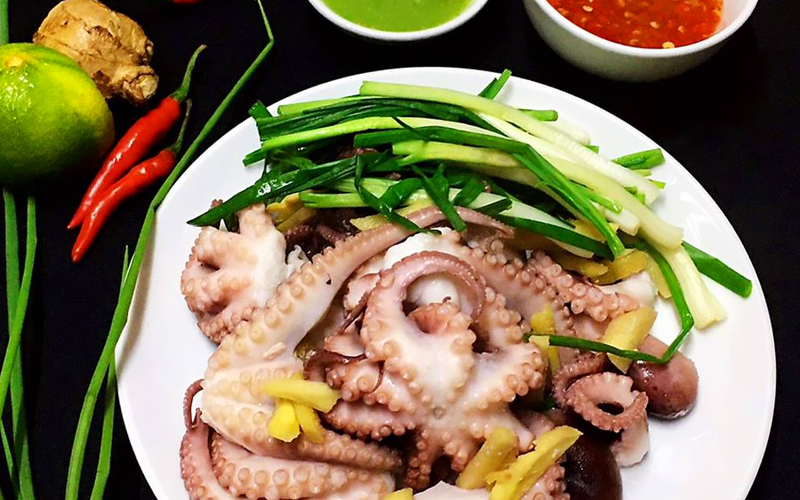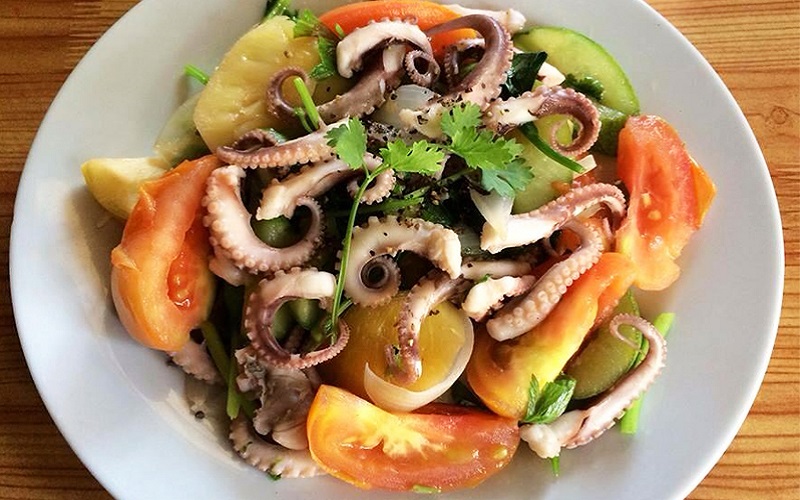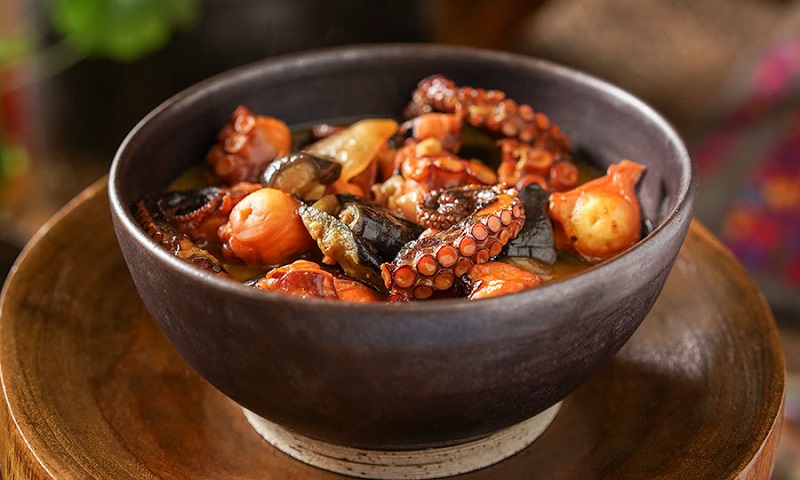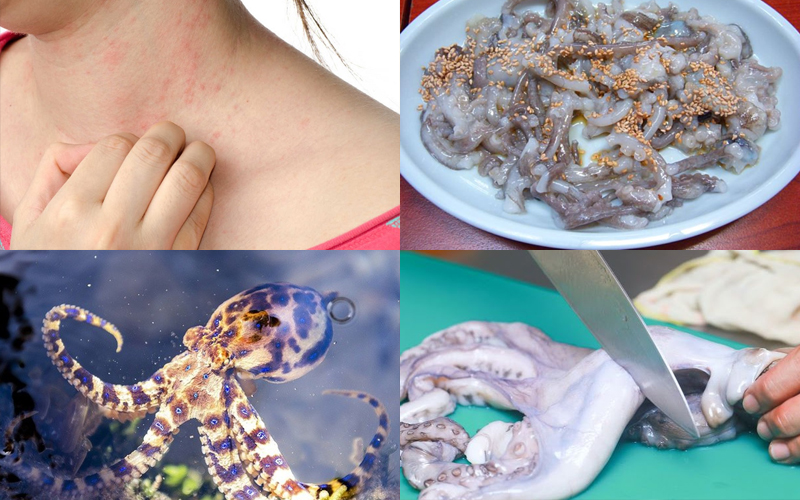Octopus is an incredibly popular seafood choice due to its unique and delicious flavor, as well as its affordability. Beyond its tasty appeal, octopus also offers a plethora of health benefits. Let’s delve deeper into this “sea monster” and uncover more about it in the article below.
1 Anatomy of an Octopus

Octopuses are soft-bodied creatures, similar to squid. They are boneless and lack a hard shell, allowing them to easily maneuver through small crevices in the ocean.
Octopuses are often referred to as “monsters of the sea” because they possess three hearts and nine brains. Two of their hearts are responsible for pumping blood to their gills, while the third heart circulates blood to the rest of their body. Interestingly, this third heart often stops beating when the octopus swims.
Their nine brains consist of one central brain, which analyzes and makes decisions, and eight smaller brains located at the base of each arm (tentacle). When information is received, it is transmitted to these smaller brains and then processed and sent back to the central brain.
When confronted with a threat, octopuses employ several defense mechanisms, including ink ejection, camouflage, and autotomy (self-amputation of their arms). Their ink contains melanin, which helps mask their scent, making it difficult for scent-reliant predators to track them.
2 Health Benefits of Octopus
Aside from being a culinary delight, octopus offers a plethora of health advantages.
Boosts Immunity and Prevents Anemia

Octopus is a good source of vitamin B12, which helps strengthen the immune system. Additionally, its high iron content facilitates red blood cell production and prevents anemia.
Ideal for Dieting and Weight Loss
With its low calorie and fat content and abundance of protein, octopus is a perfect choice for those on a diet or aiming to lose weight. However, avoid deep-frying or coating it with mayonnaise to maintain its health benefits.
Reduces Risk of Cancer
The selenium found in octopus acts as a shield, protecting the body from the harmful effects of free radicals and reducing the risk of cancer.

Prevents Aging and Enhances Metabolism
Octopus contains antioxidants due to its selenium content, which helps prevent premature aging and boosts metabolism, keeping you youthful and vibrant.
Reduces Stress and Promotes Heart Health

The taurine in octopus helps alleviate stress, and it also supports a healthy heart.
Beneficial for the Liver and Brain
Octopus is rich in phosphorus, which is essential for brain development, especially in children. Additionally, taurine improves liver function and protects it from fat accumulation due to alcohol consumption.
3 Delicious Octopus Dishes
Octopus is incredibly versatile and can be used to create a myriad of mouthwatering and nutritious dishes. If you have some octopus in your kitchen but are unsure what to cook, here are some simple yet delectable suggestions:
Steamed Octopus with Ginger

This dish is incredibly easy to prepare and highlights the natural sweetness of the octopus. Simply steam the octopus with ginger and serve it with soy sauce for dipping. Enjoy the tender, fresh octopus with a hint of ginger—it’s a perfect side dish or appetizer.
Stir-fried Octopus with Pineapple, Tomato, Cucumber, Onion, and Celery

This colorful stir-fry is a favorite among many due to its nutritional profile and vibrant presentation. It includes vitamins from pineapple, tomato, cucumber, onion, and celery, in addition to the nutrients from the octopus. The crispy, chewy texture of the octopus combined with the sweet, sour, and crunchy elements of the vegetables makes it a flavorful and satisfying meal.
Indian Octopus Curry

If you’re a fan of curry dishes like “” and “pork curry,” you’ll definitely want to try this unique and flavorful Indian Octopus Curry. The aromatic curry spices blend beautifully with the rich and creamy coconut milk, resulting in a non-greasy, satisfying dish. The tender and chewy octopus pairs perfectly with bread or rice, so don’t hesitate to give it a try!
4 Precautions when Eating Octopus

While octopus is a delightful culinary treat, it’s important to exercise caution when consuming it. Here are some essential considerations:
If you have a history of seafood allergies, approach octopus with caution. It’s advisable to start with a small portion and seek medical attention if any allergic reactions occur.
Some people enjoy consuming raw octopus, but it’s crucial to do so with extreme care to avoid choking hazards from the suction cups on the tentacles. Always opt for fresh, properly prepared octopus from reputable sources.
Octopuses can harbor harmful microorganisms and bacteria, which may lead to symptoms like headaches, nausea, and itching. Therefore, thoroughly cook and prepare octopus before consumption.
If you’re unfamiliar with selecting octopus, seek advice from experienced individuals to avoid toxic species, such as blue-ringed octopuses and those with green bodies and spots, which contain the deadly tetrodotoxin.
Octopus is a versatile ingredient that can be transformed into delectable and nutritious dishes. While it’s a tasty treat, remember to keep these precautions in mind to ensure a safe and enjoyable culinary experience.
Fresh and Delicious Seafood in Season with High Protein Content
Stepping into September, it’s the season of succulent and flavorful seafood. Indulging in the delicacies during this time is an absolute delight for the taste buds.
































